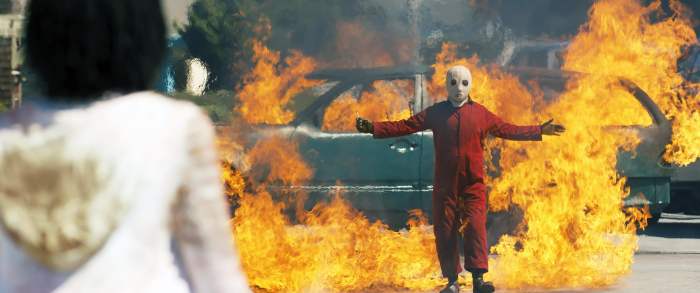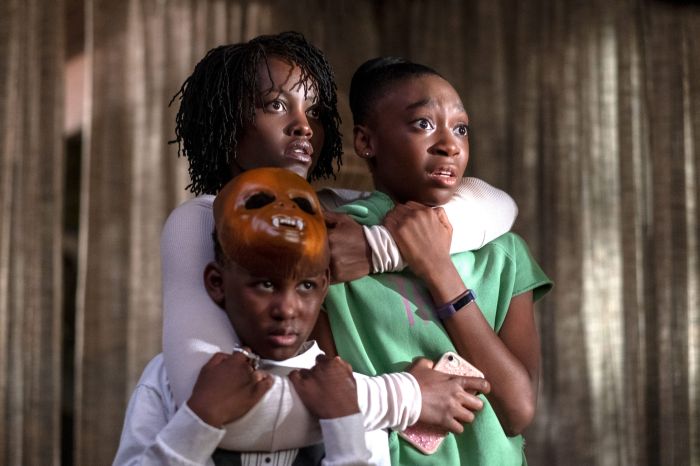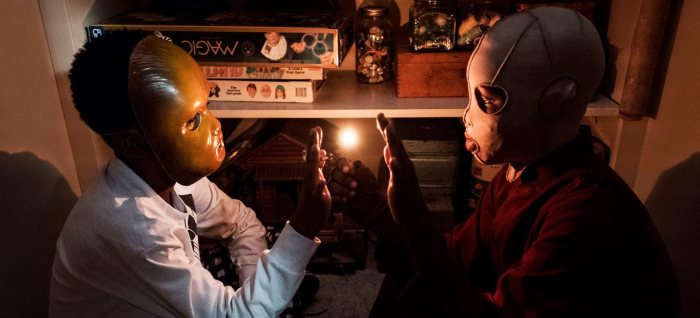Many of you were probably watching the Super Bowl when the superbly jarring first ad for Jordan Peele‘s reboot of The Twilight Zone aired, and if you were like me, you thought to yourself, “damn, I should probably check that out.” Carrying the star power of Peele, who serves as executive producer and de facto host of the reboot of the original series (first aired from 1959 to 1964, and also revived on two separate occasions in 1985 and 2002), 2019’s version of The Twilight Zone clearly hopes to draw fans of the director, who is currently riding quite the high in the wake of the success of Get Out and, more recently, Us. It’s often quite hard to come to terms with the fact that less than four years ago, Peele was more predominantly doing stuff like this, but either way, he’s engaging in a creative realm that’s seemingly far different now, and after 7 episodes (the series premiered a little over a month ago on April 1st), I thought I’d add my voice to the critical response that – especially from a general audience perspective – has been middling.

It is a dimension as vast as space and as timeless as infinity. It is the middle ground between light and shadow, between science and superstition, and it lies between the pit of man’s fears and the summit of his knowledge.
The Twilight Zone for the most part relies on the by all accounts successful formula of the original incarnation of the series, featuring disconnected episodes that typically begin with a short intro of that episode’s characters, a brief enigmatic interlude by Peele himself (typically having been in the background of the opening scene the whole time, looking dapper in a suit and tie), and a visually gonzo title sequence that invites the viewers into the mysterious Twilight Zone, where seemingly anything is possible so long as it’s decidedly eerie. While each episode has a wholly different story, writer-director team and a different principle cast, what links each is an overarching visual acuity and high production value along with the occasional Easter Egg harkening back to either a previous episode in the revival or a story element from the version way back in the 1960’s (Northern GoldStar Airlines has shown up a few times, and Whipple is essentially everywhere, it seems).

Tracy Morgan‘s guest spot in “The Comedian” is probably the series’ best yet.
The biggest knock I have to level against this new version of The Twilight Zone is the preponderance of what I’ll for now call preachiness in certain episodes. The presence of timely hot-button issues in “Replay,” (which deals with police brutality and racism within the context of a time-travel mechanic) and “The Wunderkind” (which touches on the idea of a country led by a literal kid president) is not wholly unwelcome, but the societal questions that they aim to address are handled in a way that’s anything but subtle. “The Wunderkind” in particular finds John Cho in excellent form (who I’ve really been enjoying recently, since Searching and, to an extent, Columbus), but the on-the-nose nature of the political content within the episode turns it into more of a farce than a meaningful treatise on the flaws that Peele and company see within the confines of the current political system. While societal subtext is arguably what has made Peele’s feature film efforts so prosperous, long-form quasi-satirical horror may simply be a better venue for it than a vignette-based show that’s more overtly focused on what it means to be human and interact with other humans within unsettling – and more often than not paranormal – circumstances.

The need for bodycams has never been more apparent than in the events of “Replay.”
My favorite episode thus far is still probably “Nightmare at 30,000 Feet,” the second episode, which finds Adam Scott, a distinctly paranoid journalist, unraveling a plot to crash the very plane he’s on via a mysteriously omniscient podcast. Strongly written (this is the only episode to date on which Peele has story credit, which I feel is important) and acted, and with an unsettling and unresolving ending that’s emblematic of the Twilight Zone of old, it’s good clean fun that still endeavors to state something about the human condition and its intricacies without the at times incessant politicking of some of the other episodes that I’ve already mentioned. Similarly grounded in its devotion to sci-fi/paranormal storytelling and limited subtext is “The Comedian,” which features Kumail Nanjiani learning some difficult lessons about the cost of fame, “A Traveler,” a Christmas-set episode that examines an Alaskan cop’s investigation into a mysterious internet-famous tourist (The Walking Dead‘s Steven Yeun), and “Six Degrees of Freedom,” in which the crew of the first Martian expedition struggles to maintain their grip on reality while en route to the red planet in the wake of a seeming nuclear holocaust on Earth.

Greg Kinnear is probably due a feature role as a doofy police chief based on his turn in “The Traveler.”
In any case, and based on my experience with The Twilight Zone after watching six episodes, the reboot is one that clearly fancies itself to be an instrument of social commentary, and – perhaps more ambitiously – social change. It’s a version of Black Mirror that supplants the shaking of fists at the iCloud (Charlie Brooker‘s words, not mine) with occasional allegorical and subtextual discussion of left-leaning social and political ideals, and this is perhaps most clearly evinced by the title of the latest episode, “Not All Men,” which I have not yet watched. To me, the show has been at its best so far with the more purely dystopic or paranormal fare upon which it should continually feast, but what’s clear either way is that Jordan Peele and a phenomenal cast of guest stars (which oddly enough features quite a few comedians) show up each week to tell a story in a way that demonstrates clear conviction. The reboot hasn’t struck me as profoundly as certain episodes of its original source material have in the past (seriously, “Time Enough at Last” is so good), nor has it been as overall disturbing and thought-provoking to me as Black Mirror in its best moments, but it’s certainly not as depressing overall as the latter, which is good, and either way it’s well-deserving of its second-season order. As anthology series go, you can do far worse, even while being bludgeoned by the show’s thinly veiled ulterior motives.

“Six Degrees of Freedom”: Not to be confused with Six Degrees of Separation.
The Twilight Zone is streaming exclusively on CBS All Access, which is CBS’s streaming service. I got it just before the Super Bowl, and it’s worth the $6 a month, if only to watch The Twilight Zone in all of its incarnations, along with Survivor (Jeff Probst is aging like a fine wine, but that’s probably a topic for another post).




